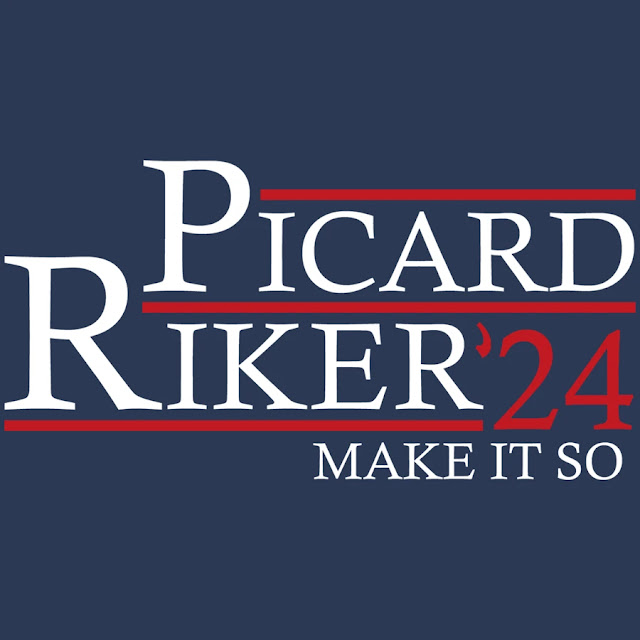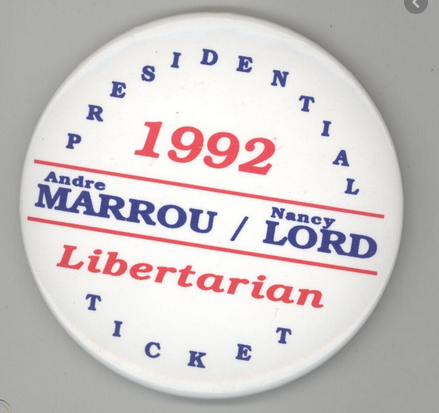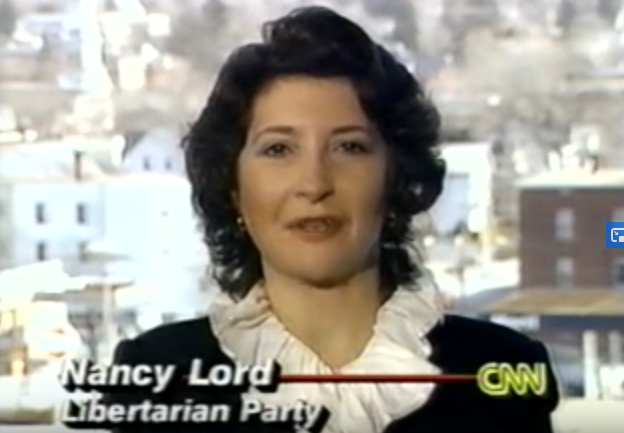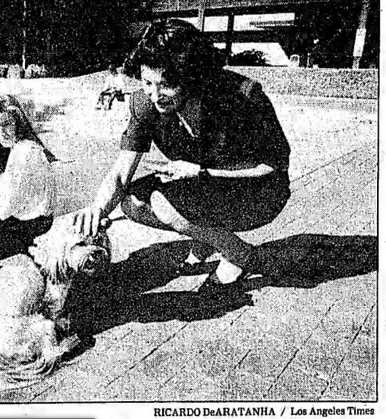James Bond Stockdale, December 23, 1923 (Abingdon, Ill.) – July 5, 2005 (Coronado, Calif.)
VP candidate for Independent (aka No Party Party aka Independents aka Americans for Perot aka Unaffiliated aka Nonpartisan aka Prudence, Action, Results aka Minnesota for Perot aka Independent Initiative Party of Oregon aka Pennsylvanians for Perot aka Perot for President aka Petition aka United We Stand America) (1992)
Running mate with nominee: Henry Ross Perot (1930-2019)
Popular vote: 19,743,821 (18.91%)
Electoral vote: 0/538
The campaign:
Early in the 1992 election season I recall seeing future US Sen. Al Franken on the Comedy Network, I think, and he said something like: "As a Democrat, we are used to coming in second. But this year will be different. This year we'll be coming in-- third." He was making a reference to the Presidential run of political independent Ross Perot, a Texas billionaire who was turning the political establishment upside down and was actually leading in the polls early the campaign.
Perot was already known to many Americans as a business tycoon with a flair for publicity with his POW/MIA activities and backing the rescue of Americans imprisoned during the Iranian Revolution. He opposed the first Gulf War and was a critic of the financial condition of the USA after 12 years of Republican administration.
The Perot movement was unique in many respects. Unlike previous major third party efforts, this was not a splinter from one of the major parties led by a professional politician such as Theodore Roosevelt, Robert La Follette, Strom Thurmond, Henry Wallace, George Wallace, or John Anderson. Nor was it a temporary spike from a longstanding minor party, like Eugene Debs' Socialist campaign in 1912. Using Larry King's television show as his springboard, Perot was a colorful, folksy personality with no elected public service experience who was able to self-fund his campaign to a great degree.
My impression at the time was that most Americans were vaguely aware Perot was sort of a centrist, but it was his personality that really captivated them. His charts, his twangy no-nonsense put-downs of the politico class, and his feisty attitude was refreshing-- at least in the early half of 1992.
Economics was his main priority, where he was a protectionist. On most social issues Perot was to the Left of the Republicans. My Goldwater libertarian contrarian father loved Perot, as did some of my liberal friends, so the attraction was broad. But there again, this might have been a form over content appeal.
His platform included (as near as I can piece together): Pro-choice on abortion ; Balance the budget in six years ; Gay orientation is an individual right ; Criminals have too many rights ; Approach the War on Drugs in military terms ; Supply treatment for drug addicts ; Raise gas taxes ; Send aid to the former USSR ; NAFTA creates that "giant sucking sound" costing jobs in the US ; Eliminate the Electoral College ; Set up electronic town meetings ; Stricter gun control laws ; Expand Medicare ; Be more aggressive in fighting AIDS.
As the campaign progressed and the media began to vet Perot, some of the less attractive sides of his personality began to emerge. Long considered by the press to be "eccentric," they now added descriptions like "paranoid" and "authoritarian." As the major parties began their conventions, Perot astonished the country by dropping out of the race in July. He even said, if my memory serves, "The Democrats have their act together."
Shortly after Perot's departure from the race (an act that remains mysterious to this day in spite of any reasons given), other third parties were scrambling to scoop up the independent voters who were now looking for a new home. But just as inexplicable as his exit had been, Perot jumped back into the race at the start of October.
Although his credibility had suffered as a result of his odd actions, Perot was considered a major enough force to be included in the Presidential debates, the first and only time both major party candidates were in the ring with an independent. That was a mistake the Republicans and Democrats will probably never make again in my lifetime. Perot clearly took charge of the proceedings, demonstrating that when it came to television, Ross was Boss. Some of the more memorable moments include:
[When George Bush put Perot down for not having professional government experience, Perot responded]
Well, I don't have experience in running up a $4 trillion dollar debt. I don't have experience at government gridlock. Or creating the worst school system, the most violent, crime-ridden society in the industrial world. I do have experience in not taking 10 years to solve a 10-minute problem. [I was at my Dad's house when I watched this debate and he loudly cheered when this line was delivered]
Those guys in $1,000 suits and alligator shoes prowling the halls of Congress ... we'll have 'em in the Smithsonian museum.
[On drug dealers]
There are people couldn't work the third shift at Dairy Queen driving BMW's and Mercedes.
I'm not here to play Lawrence Welk music.
The American people aren't as stupid as Washington thinks.
If you hate people, don't vote for me.
In the early stages of navigating the Byzantine world of third party ballot access, Perot selected Admiral James Stockdale who was originally intended as a stand-in VP candidate. A true American hero, Stockdale had endured over seven years of imprisonment and torture after having been shot down during the Vietnam War. He had allied himself with some paleoconservative groups after his return to civilian life. In the course of considering a more permanent running mate, Boston University President John Silber's name came up. National Institute of Health Director Bernadine Healy was apparently offered the job, but declined.
By October, Stockdale, aged 68, was tattooed on the ticket, like it or not. His defining moment came during the Vice-Presidential debate with Quayle and Gore, the first and only time a third party VP was allowed in a debate with both major party contenders. Stockdale was given only a week to prepare. For many of us who watched, it was our first real exposure to Perot's running-mate. His much parodied opening line, "Who am I? Why am I here?" was often repeated out of context and used as a source of derision, but in fact when he uttered that phrase at the time it was met with great applause and approval. It looked like a wonderful introduction. Much later at one point he mentioned his hearing aid, and that remark overshadowed most of his other statements.
It was evident the Admiral was not comfortable in the professional political pushy salesman role that was second nature to Quayle and Gore. The moderator had to frequently make an effort to ensure that Stockdale even had an opportunity to speak. Here were my favorite Stockdale highlights from the debate, including "Who am I? Why am I here?" followed by the rest of his introduction:
Moderator:
Admiral Stockdale, your opening statement, please, sir.
Stockdale:
Who am I? Why am I here? I'm not a politician; everybody knows that. So don't expect me to use the language of the Washington insider. Thirty-seven years in the Navy and only one of them up there in Washington. And now I'm an academic. The centerpiece of my life was the Vietnam War. I was there the day it started; I led the first bombing raid against North Vietnam. I was there the day it ended, and I was there for everything in between. Ten years in Vietnam. Aerial combat and torture. I know things about the Vietnam War better than anybody in the world. I know some things about the Vietnam War better than anybody in the world. And I know how governments -- how American governments -- can be courageous and how they can be callow, and that's important. That's one thing I'm an insider on.
I was the leader of the underground of the American pilots who were shot down and imprisoned in North Vietnam. You should know that the American character displayed in those dungeons by those fine men was the thing of beauty. I look back on those years as the beginning of wisdom, learning everything a man can learn about the vulnerabilities and the strengths that are ours as Americans. Why am I here tonight? I am here because I have in my brain and in my heart what it takes to lead America through tough times.
------------------------------------------------------------
[Quayle and Gore dominated the airtime. After a long session of back and forth bickering, Stockdale finally commented with perfect timing]
And I think America is seeing right now the reason this nation is in gridlock. The trickle-downs and the tax-and-spends, or whatever you want to call them, are at swords' points; you can't get this economy going. Over here we've got Dan, whose President is going to take eight years to balance the budget, and on my left, the Senator, whose boss is going to get it halfway balanced in four years. Ross Perot has got a plan to balance the budget five years in length from start to finish. And we're people of the non-professional category who are just sick of this terrible thing that happened to the country, and we've got a man who knows how to fix it. And I'm working for him.
------------------------------------------------------------
Moderator:
Admiral Stockdale, would you like to start the discussion period?
Stockdale:
Well, I'm out of ammunition on this.
------------------------------------------------------------
Stockdale:
I believe that a woman owns her body and what she does with it is her own business -- period. Period.
Moderator:
That's it?
Stockdale:
I don't -- I, too, abhor abortions but I don't think they should be made illegal and I don't think it's a political issue. I think it's a privacy issue.
------------------------------------------------------------
Although I had no intention of voting for Perot I recall having a favorable opinion of Stockdale immediately after the debate, but my opinion was definitely in the minority. In terms of integrity, honesty, and serving the public good over party loyalty, I felt Stockdale won the debate.
Saturday Night Live had a field day with Stockdale in a famous skit that had Perot (Dana Carvey) attempting to abandon an addled Stockdale (Phil Hartman) in the woods like an unwanted pet and it cemented the image of the Admiral as a drag on the ticket. I'm a fan of Carvey and Hartman (RIP), but it was former
SNL actor Dennis Miller who a couple years later more accurately summed up the debate:
Now I know (Stockdale's name has) become a buzzword in this culture for doddering old man, but let's look at the record, folks. The guy was the first guy in and the last guy out of Vietnam, a war that many Americans, including our present President, did not want to dirty their hands with. The reason he had to turn his hearing aid on at that debate is because those f-----g animals knocked his eardrums out when he wouldn't spill his guts. He teaches philosophy at Stanford University, he's a brilliant, sensitive, courageous man. And yet he committed the one unpardonable sin in our culture: he was bad on television.
Unfortunately in later years Miller endorsed Donald "Bone Spur But I Don't Remember What Foot" Trump in 2016 who infamously said of former POW John McCain, "He's not a war hero. He was a war hero because he was captured. I like people who weren't captured." You would think that loathsome quote would be a deal breaker for any patriotic American no matter what their political leaning. But obviously Miller and other conservatives suffered from a condition known as situational ethics (it afflicts liberals as well). Even so, I still agree with Miller's critique of how unfairly Stockdale was treated by the media.
The Perot/Stockdale ticket made history on Election Day. Just by raw numbers they racked up nearly 20 million popular votes, the most of any stand alone third party in the US. Their percentage vote of 18.91% ranked as the third highest ever for a minor party after the Progressive (1912) and American (1856) parties. Perot's failure to acquire any Electoral votes demonstrated that his support was evenly spread geographically although his highest percentages were mostly in the Far West. The debate on whether Perot was a spoiler, handing the election to Bill Clinton continues to be an open question to this day. In my corner of the world, out here in the coastal and rural logging country of Washington State, Perot pushed George Bush into third place in my county and town.
Perot was the victor in several counties across the country. In Utah and Maine he placed second. Only in DC and Mississippi did he finish with under 10% of the popular vote. He would be back in 1996.
Admiral Stockdale's legacy is contributing a philosophical outlook to popular culture called "The Stockdale Paradox." When asked by writer Jim Collins how he survived over seven years of brutality and torture in the "Hanoi Hilton," Stockdale said: "You must never confuse faith that you will prevail in the end — which you can never afford to lose — with the discipline to confront the most brutal facts of your current reality, whatever they might be."
When asked who failed to make it out of the POW condition he said, "Oh, that's easy, the optimists. Oh, they were the ones who said, 'We're going to be out by Christmas.' And Christmas would come, and Christmas would go. Then they'd say, 'We're going to be out by Easter.' And Easter would come, and Easter would go. And then Thanksgiving, and then it would be Christmas again. And they died of a broken heart."
His real-life brand of stoicism is being revisited and quoted today by writers covering the way Americans are having to adjust to a new New in this age of Covid-19.
Election history: none.
Other occupations: Officer USN, President of the Naval War College, President of The Citadel, author, lecturer, fellow with the Hoover Institution, board of directors Rockford Institute,
Buried: United States Naval Academy Cemetery (Annapolis, Md.)
Notes:
Endorsed Pete Wilson in the 1996 Republican primaries.
Buried in the same cemetery as Pedro del Valle, John McCain, Stansfield Turner, and Elmo Zumwalt
Jr.
Full disclosure: I voted for Clinton in 1992 but enjoyed Perot's ability to poke the system. If I do say
so, I was known to perform a dead-on impersonation of Mr. Perot and would call up my friends and
colleagues pretending to be the candidate asking for their votes. You might think that's just sad but
I'm tellin' you it was a really world class act.

















































